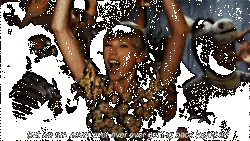Author: Anna Ravenelle
I get it. You never got anything less than an A proper in high school and you were president of every club you were in. You did everything everyone asked of you – the first time – and you never needed to ask for help.
Then you get to Cornell and suddenly you feel inadequate. Maybe your GPA is below a 3.5 for the first time; maybe you gain the freshman 15 (or 30) and none of your relatives will let you forget. Maybe you don’t get into that exclusive organization or win an e-board election for the first time in your life. Maybe you feel like you aren’t enough.

So when a new, attractive person shows interest, it’s hard to resist. You might genuinely like them or the attention they give you because that’s what you need right now. They want to make your relationship “official” — a rarity, not the norm — and you hold on to that. Someone wants you; you are finally good enough.
Then things begin to change; it is slow, but tangible. You are no longer buoyed by her presence, but dragged down. Easy hangouts become a struggle between your boyfriend and your friends; your boyfriend always wins. Arguments–arbitrary or important–replace the flirty banter that started your relationship. They last hours, sometimes days, until you give in, your chest tightening while hers visibly releases. You tell yourself that everybody fights–it means your relationship is filled with passion.
He says you can’t go out with your friends but you do and that night you scream along to Taylor Swift’s “We Are Never Getting Back Together,” and you mean it–until you see him again and you can’t remember ever missing anyone that much. He says that he “let you” go and the phrase troubles you but you put the thought aside because it’s not worth the fight.

Your grades slip because she instigates arguments the nights before prelims and the failing grade is better than a failing relationship. You give up on extra-curriculars, both because he wants to spend that time with you and because you’ve only been involved with it for a semester so it’s no big deal. You drift from friends until suddenly you can’t remember the last time you got dinner with your roommate. You find yourself googling “signs of a toxic relationship,” but only on private browsing mode while he’s in class on the opposite side of campus. You defend her aloud (“You just don’t really know her, she’s different when we’re alone”) while you question her in your head. His arms are both a lifejacket and a noose.
You are not used to asking for help; you were brought up to be independent, rational, intelligent. You could not have possibly fallen into this trap. This relationship isn’t toxic because you’re too smart for that.
That is what I told myself.

The two are not mutually exclusive; a relationship has no bearing on your intelligence. Brains and hearts and thoughts and emotions are wonky things that don’t always get it right. We can know something is wrong but still feel it is right. That does not make us stupid, or unintelligent, or irrational. It just makes us human.
It’s okay to be scared about changing such a big part of your life–I was terrified. I want to tell you that once you ask for help everything else will be easy, but removing a toxic relationship from your life will likely be one of the hardest things you will ever do. And that, too, is okay.
There is no shame in finding it difficult to end things. There is no stupidity in looking back on your time together with mingled happiness and frustration. There is no irrationality in running at the sight of her, changing your phone number, or blocking him from social media. There is also no irrationality in seeing her and waving (or wanting to)–though if you can do that, you are braver than I am.

Asking for help to leave a toxic relationship is the smartest move you can make. No one will think less of you for your experience. So call your parents, your best friend, your cousin, your pastor, your high school guidance counselor. Call the Ithaca Advocacy Center. Call the National Domestic Violence Hotline. Call whoever you think can best get you out of your bad situation–then follow their advice.
It might not be immediate, but there will come a day when you cannot imagine how that person ever fit into your life. Your grades will go back up. Your friends will welcome you back. Clubs will be happy to have you once more. Your shoulders will lighten, your smile will become genuine, your laugh won’t be hollow. It may not happen all at once, but it will happen. You will be just as smart as you always have been, but you will also recognize the signs. And you will never let it happen again.
If you don’t know who to ask for help, contact the Ithaca Advocacy Center at 1 (607) 277-5000 or the National Domestic Violence Hotline at 1 (800) 799-SAFE
See what Cornell is doing to prevent Sexual Assault on campus at http://www.cornellsaaw.com/






